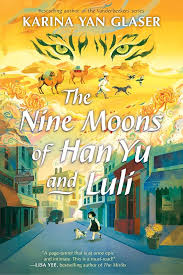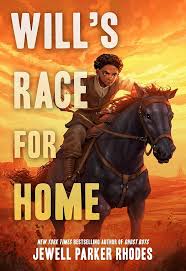
As a kid, I loved reading historical fiction. In my day, most of these stories centered on Europe and a war. I felt transported to other times and places, and was introduced to characters my age confronting challenges of survival. I enjoyed connecting with kids from the past who, with their friends and families, bravely faced difficulties.
Now, we have more novels told by historically underrepresented voices that offer perspectives on a wide variety of events. Rudine Sims Bishop described how books can be mirrors to a readers life, or can build empathy through windows where readers can view lives of others, or may provide sliding doors where readers can step into another world and immerse themselves in a new reality.
Here, I offer six wonderfully written, diverse titles that serve as a portal to another time.

A Sea Of Lemon Trees by Maria Dolores Aguila, Macmillan, 2025, 273 pp.
This novel in verse is inspired by the true story of Robert Alvarez and the Lemon Grove Incident where one child’s courage to stand up for what is right and the determination of the Mexican community will transport readers to the challenges confronted by Robert in 1931 San Diego. Young Roberto was chosen to speak up about the horribly unfair conditions in the separate school for Mexican immigrants. This is the uplifting story of how his activism brought great changes to the “Americanization” efforts.

Zarina Divided by Reem Faruqi, Harper Collins, 225, 326 pp.
Zarina’s idyllic life in 1947 Poona, India is abruptly ended when her Muslim family moves to Pakistan during the Great Partition. Lyrical verse paints a realistic picture of Zarina’s hardships, including acts of violence and racism, as she journeys by train and boat to a new home. Just as Zarina begins to settle into her new life, she makes a big mistake. Her family agrees to let her go to boarding school, where a whole new set of challenges confront her. This novel brings a fresh perspective to the religious divide of a country.

The Nine Moons of Han Yu and Luli by Karina Yan Glasser, Harper Collins, 2025, 420 pp.
Han Yu and Luli Lee live 1200 years apart, yet they both share a goal: they go to great risks to save their families. In 731 a plague threatens Chang An, China, and Han Yu must trek across the Silk Road to fulfill a promise and find a cure. In 1931, New York’s Chinatown, Luli starts up her own bun business to bring her family’s restaurant back from the brink of foreclosure. Big themes and small details – like buns and birds – connect these two stories. The ties that bind Han Yu and Luli across centuries are an unforgettable surprise.

Seabird by Michelle Kadarusman, Pajama Press, 2025, 199 pp.
Twelve-year-old Katina brings nineteenth century Indonesia (also known as the Dutch East Indies) to life through her letters to her best friend and her passion for learning. Inspired by the real-life Javanese noble turned activist, Raden Adjeng Kartini, this novel depicts how girls were given little freedom. Noble-born Kartini was confined to her house at twelve until she was to be married. Educated, Kartini turned to her best friend, Letsy, who had returned to Holland for help. Through her skills as a writer, Kartini speaks out, and like a seabird, gets free of her cage, and becomes a celebrated advocate for education.

How To Say Goodbye in Cuban by Daniel Miyares, Random House, 2025, 223 pp.
Readers get a visual and personal view of Castro’s Revolution in Cuba in this emotionally gripping graphic novel. Based on the experiences of the author’s father, readers see the uncertainty and fears Carlos faced as a child while his family was being threatened for owning land. Major events in Castro’s path to power are explained in a straightforward manner. Miyares does an excellent job describing the differing opinions of Castro that the Cubans held.

Will’s Race For Home by Jewell Parker Rhodes, Little Brown, 2025, 196pp.
This is a Western like no other. It’s 1889, and Will has persuaded his father to allow him to accompany him on the treacherous trek from Texas to Oklahoma. It’s been several decades since the Emancipation Proclamation, yet his father still does not have the right to own land – unless he takes advantage of the Oklahoma Land Rush. The journey is difficult not only because of the difficult terrain, but also because of the racism, poverty, and violence Will and his father experience along the way. Belle the mule, and frequent illustrations add charm to the story.

Excellent list – would be a great class project to read and present each one.